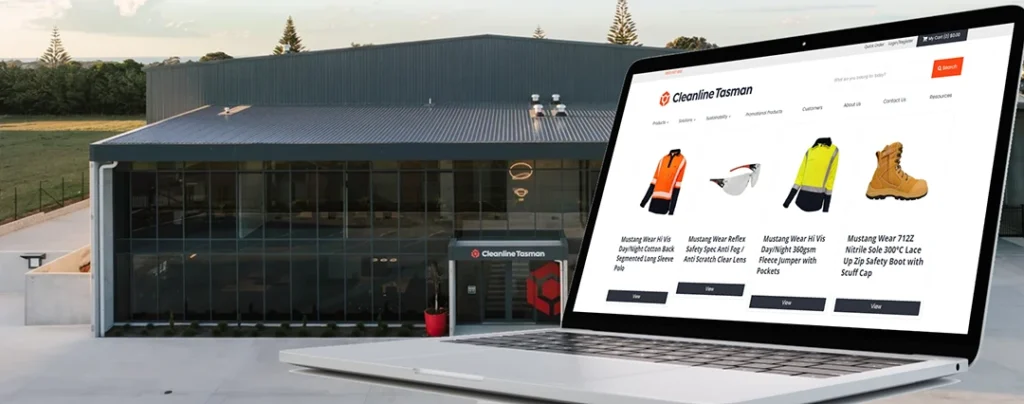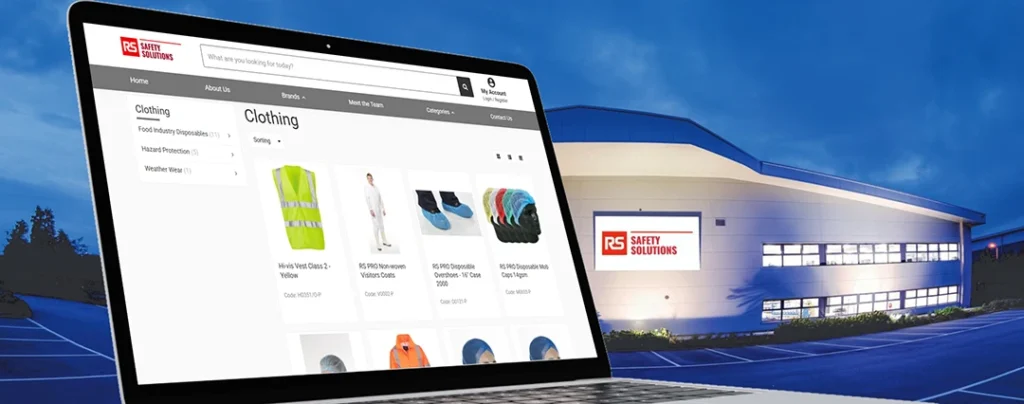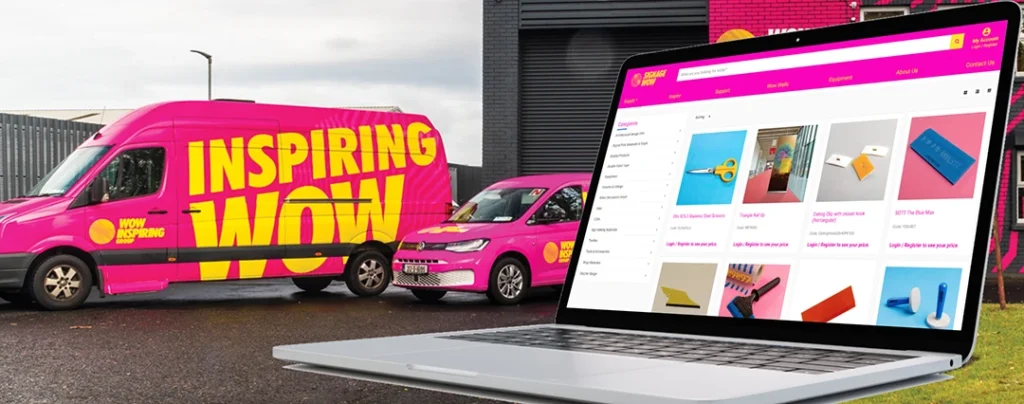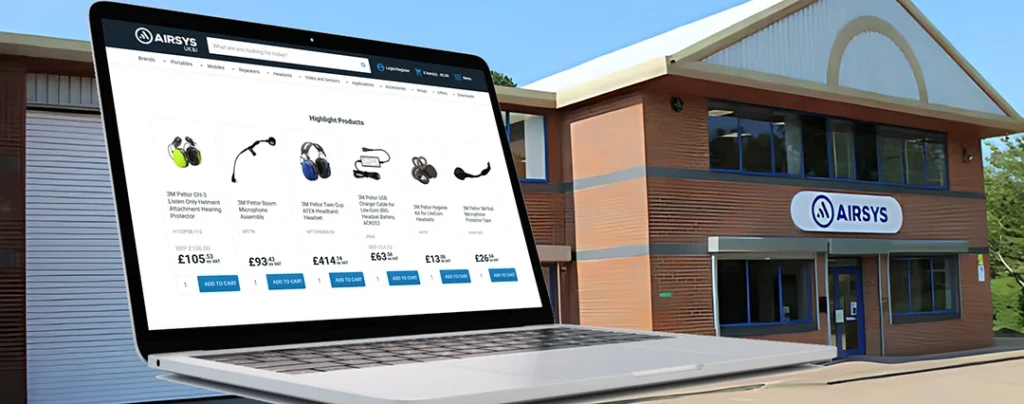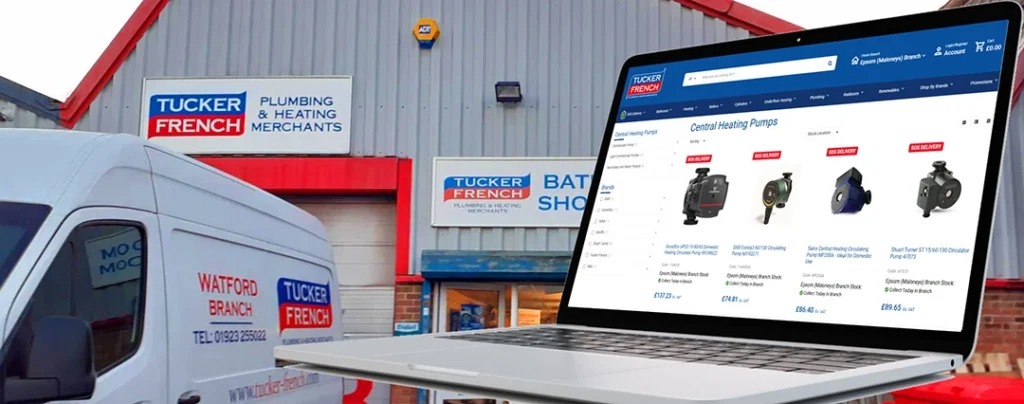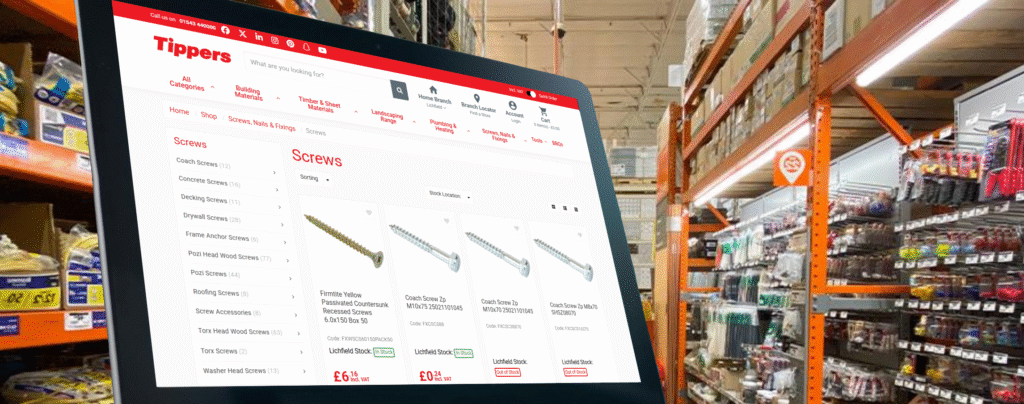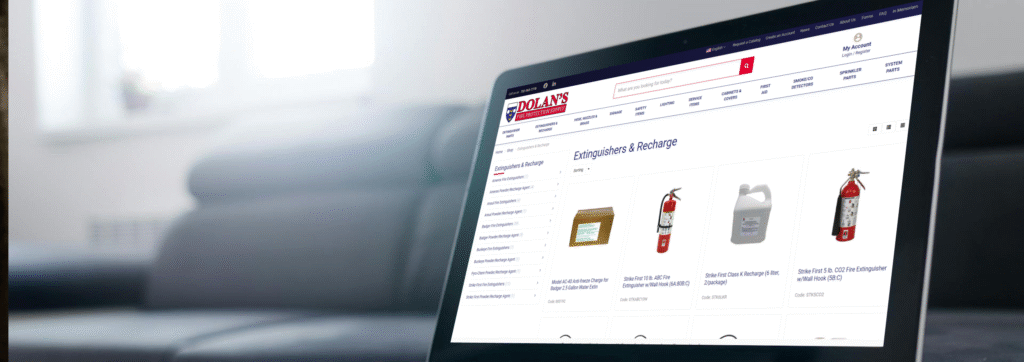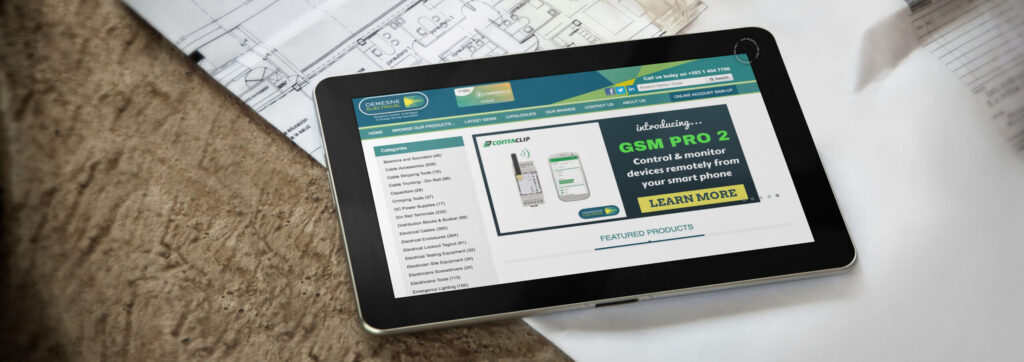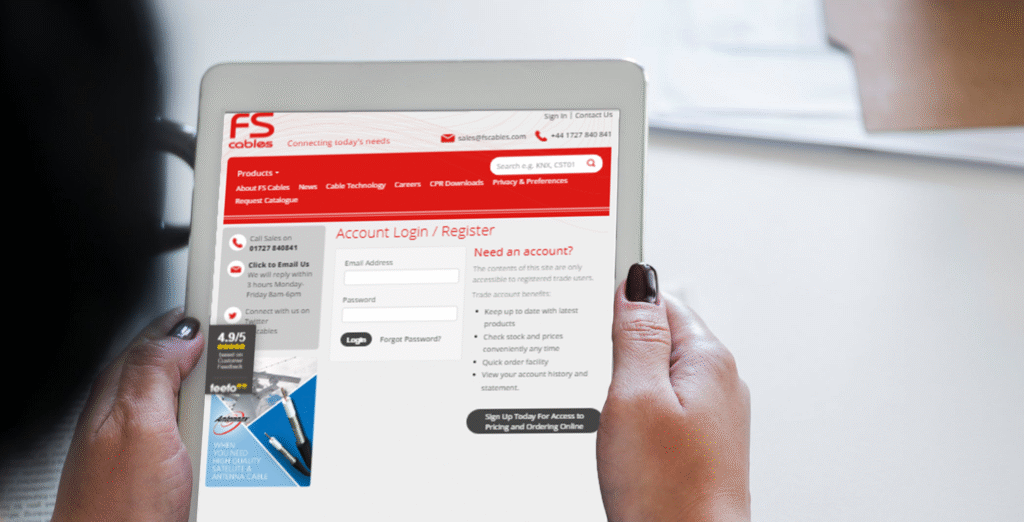Shopify is the most recognizable e-commerce platform in the world. Millions of entrepreneurs have used the tool to create their online store and sell to buyers around the world.
Here’s the catch: most of those entrepreneurs run B2C businesses.
B2B and B2C business operations are very different. As such, companies that serve B2B customers should think twice before building a Shopify store.
In this article, we’ll answer questions like, “What are Shopify’s strengths in B2C?” and “What are the limitations of the Shopify B2B wholesale feature set?” By the end, you’ll know whether Shopify is the best way to sell to B2B and wholesale customers, or if you need a different tool.
Shopify’s Strengths in B2C E-commerce
Shopify is an all-in-one solution for companies that sell to B2C customers. With it, entrepreneurs can build themselves an online store, offer a variety of products, and make sales.
Just as important, said entrepreneurs don’t have to be technical wizards, as Shopify is very user-friendly. It also features a comprehensive app ecosystem and scales well for certain kinds of businesses. Let’s explore these advantages in greater detail:
A User-Friendly Interface
One of Shopify’s biggest advantages is its user-friendly interface.
Online store setup is straightforward thanks to the platform’s simple drag-and-drop builder—no coding skill required. Shopify users also enjoy extensive design customization options, which allow them to tailor their store to their brand.
If you want to focus more on your potential customers and less on technical challenges, you’ll appreciate the usability of Shopify. It really is a great option for any retail business.
Comprehensive App Ecosystem
Shopify has a stellar third-party app store too. This makes it easy for users to integrate their various marketing tools and enhance the customer experience.
Certain apps will even allow users to translate their online store into multiple languages. Or create native experiences on social media platforms like Facebook, Instagram, and TikTok.
At the end of the day, the availability of these third-party apps contributes to Shopify’s versatility. It ensures that B2C businesses can stay competitive and relevant in an ever-evolving market—no matter how big or small they are.
Scalability for Growing Businesses
Finally, Shopify can assist almost any-size company.
Those who are brand new to e-commerce can build development stores, AKA free online stores that are used to test design ideas, order processes, etc.
Those who have been in the e-commerce game for a while can access advanced features like unlimited products, multiple sales channels, 40x checkout capacity, shipping insurance, custom reports and analytics, and a whole lot more.
Also worth mentioning, Shopify stores offer reliable hosting and security features, and can support high traffic numbers. This is something other e-commerce platforms can’t claim.
The Limitations of Shopify for B2B E-commerce
If your company serves B2B buyers, a Shopify store might NOT have the wholesale features you need to achieve success. Let’s talk about Shopify’s limitations in regard to B2B businesses:
Limited Customization for Shopify B2B Wholesale Needs
Many B2B businesses in the manufacturing and wholesale industries require in-depth customization options. Unfortunately, Shopify doesn’t provide necessary site functionality in this regard. This means you won’t be able to serve your B2B customers the way you need to.
For example, you won’t be able to offer automatic discounts to specific customers unless you work with a third-party tool. But this requires the use of Draft Order API or Shopify Functions. Neither offers a great user experience for companies in the B2B space.
(It should be noted that Shopify does allow users to build customer-specific catalogs. Once said catalogs are built, users can set custom prices for each of their buyers, offer wholesale pricing and bulk discounts, etc. But adjusting all pricing details is time-consuming.)
Simply put, Shopify doesn’t have the customization options most B2B businesses need.
A Custom Pricing Model that Doesn’t Scale for B2B
Shopify offers standard pricing options: $39 a month for the “Basic” plan, $105 a month for the “Shopify” plan, $399 a month for the “Advanced” plan, and $2,300 a month for the “Plus” plan. (Note: you can save 25% by paying yearly on the Basic, Shopify, and Advanced plans.)
Most of the B2B features are only available in the “Plus” plan, however. So your B2B company will need to shell out $2,300 a month to use Shopify. That price might fit your B2B company’s budget, but we haven’t told you the whole story yet…
Many of the third-party tools in Shopify’s app store charge additional fees. You might need 10 apps to run your B2B e-commerce website—in addition to Shopify. This could stretch your budget to the max. Given the other limitations of the platform for B2B, is it worth it?
Inadequate Support for Wholesale Customers
If you serve wholesale customers, you should think twice about using Shopify as your company’s e-commerce platform. This is true for several reasons:
- Order management and fulfillment can be a nightmare. Shopify has trouble handling large value orders, which are common in wholesale transactions.
- A lack of advanced inventory management tools makes it hard to keep track of stock levels in Shopify. This can lead to overselling or underselling products.
- Does your wholesale business deal with large data sets? Shopify doesn’t provide tools to handle this kind of information efficiently. The included reporting capabilities are also subpar—at least when compared to the average wholesaler’s needs.
- Payment and invoicing limitations are another major issue to be aware of. Shopify doesn’t offer flexible payment terms or a wide array of payment options. There’s also no native invoicing system, which means you’ll need third-party apps for these tasks. This can add to your costs and make your operations more complex.
If your wholesale business relies on streamlined and efficient processes—as most others do—Shopify’s above shortcomings might be a total deal-breaker.
Integration Challenges
Finally, Shopify doesn’t always integrate with the tools B2B companies use on a regular basis.
If you want to integrate with apps in the Shopify app store, you’ll have zero issues. But if you want to integrate with a different tool, like an enterprise-level CRM or ERP platform, you might have difficulties. To make matters worse, Shopify offers limited support for custom integrations.
Like we said at the beginning of this article, Shopify is a great platform for B2C e-commerce sites. But it doesn’t offer the functionality that most B2B companies need.
The question is, what’s a viable alternative to B2B on Shopify? Let’s talk about that…
How Experlogix Solves B2B Wholesale E-commerce Challenges
The Experlogix Digital Commerce solution was designed to help B2B companies sell products via the internet. Once you develop this sales channel you’ll enjoy:
Advanced Customization Options
First and foremost, Experlogix allows for almost any customization option you can imagine.
Want to offer wholesale prices? How about customer-specific pricing with predetermined quantity breaks? Maybe you want to offer a variants custom price list. Or get super fancy and set a conditional logic price to accommodate your customers’ exact requirements. You might just need to offer specific percentage discounts to certain customers, but not others.
The point is, the Experlogix Digital Commerce platform can be customized to suit your various wants and needs when it comes to B2B e-commerce sales.
This level of customization extends to account management tasks as well. For example, you’ll be able to easily track who your customers are, how they interact with your website, what they typically buy, where they operate, and more. You can then use this information to refine your marketing and sales efforts and improve the customer experience.
Robust Transaction Support
Unlike Shopify, Experlogix is built to support B2B wholesale transactions.
Use the platform to automate inventory management, order processing, and payment collection tasks. Doing so will free up your team to work on other revenue boosting activities.
Also of note, Experlogix allows customers to order from your company’s website or mobile app. This means you can connect with your audience, no matter where they are.
Once a product is added to a customers’ cart, they can pay in multiple ways, which will increase customer satisfaction. Invoices can then be sent out automatically.
Seamless Integration Capabilities
Last but not least, Experlogix offers seamless integrations with the other tools your B2B business uses on a regular basis. We’re talking about ERP platforms like SAP, CRM software like Microsoft Dynamics 365, and retail operating systems like Brightpearl.
Once you connect Experlogix to these tools, you’ll empower your online sales channels with direct, real-time data flow. Basically, your online store will always display accurate inventory information, and website analytics details will automatically sync with your other systems.
If you want to get fancy, you can harness the integration between Experlogix and other apps so that Experlogix auto tags customers and inputs data into custom fields inside your CRM too.
Expand Your B2B Business With E-commerce
Shopify is a fantastic platform for B2C e-commerce brands. It wouldn’t be so popular if it didn’t satisfy its many customers. But shopfiy B2B wholesale is a different story. It wasn’t designed for and doesn’t have the B2B features that wholesale stores need.
Because of that, manufacturers and wholesalers should look for a specific B2B solution.
Experlogix fits the bill! Our Digital Commerce solution was specifically designed to help B2B companies reach their audiences online and sell products. (Note: it can also be used to sell to B2B and B2C audiences from the same store, if that’s what you need.)
If you’re ready to unlock your B2B organization’s full potential and drive sales via e-commerce, schedule a strategy call with us. We’ll assess your needs and provide you with a custom demo.
